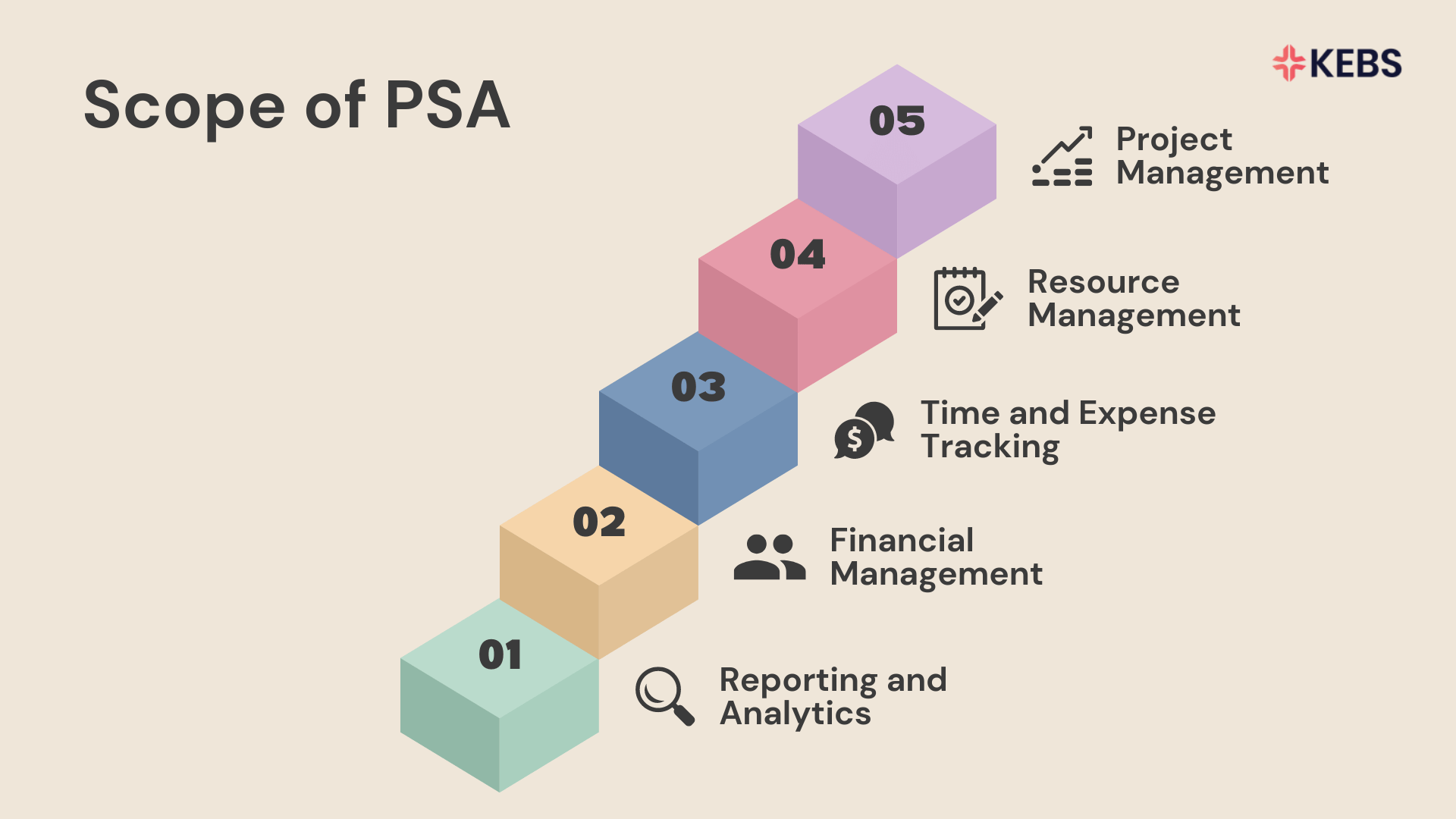
Home »
Exploring the Importance of PSA on Project Management Software
Delve into the significance of Professional Services Automation in project management software.
Introduction
Project management software has become an essential tool for managing projects, enabling teams to collaborate, plan, and track progress efficiently. However, as project complexity increases and organizations strive for optimal resource allocation, financial control, and streamlined processes, the importance of Professional Services Automation (PSA) within project management software has emerged.
This article aims to explore the significance of PSA in project management software. It delves into the definition of project management software and provides an overview of its key features and benefits. It then delves into the concept of Professional Services Automation (PSA), explaining its role within the project management context.
What is Project Management Software
Project management software refers to a digital tool or application designed to assist individuals and teams in planning, organizing, and managing projects efficiently. It provides a centralized platform that streamlines project-related tasks, communication, documentation, and collaboration, helping to ensure that projects are completed on time, within budget, and according to specified objectives.
Project management software typically offers a range of features and functionalities that aid in project planning, scheduling, resource allocation, task management, progress tracking, and reporting. It allows project managers to create project plans, define tasks and milestones, assign resources to specific activities, set deadlines, and track progress in real-time. Team members can collaborate by sharing files, communicating through integrated messaging systems, and accessing project-related information and updates.

Key features of project management software
Key features commonly found in project management software include:
- Task Management: The ability to create, assign, and track tasks, set priorities, and monitor progress.
- Gantt Charts: Visual representations of project schedules and timelines, displaying task dependencies and critical paths.
- Resource Management: Tools for managing and allocating resources effectively, ensuring optimal utilization and avoiding overloading.
- Collaboration and Communication: Features that enable team members to communicate, share files, and collaborate on project-related tasks.
- Document Management: Centralized storage and organization of project documents, facilitating easy access and version control.
- Time Tracking: The ability to record and track time spent on various project activities, aiding in accurate project costing and billing.
- Reporting and Analytics: Generating reports and analyzing project data to gain insights into project performance, progress, and resource utilization.
Understanding Professional Services Automation (PSA)
Professional Services Automation (PSA) refers to a software solution or system designed specifically for professional service organizations to manage their business processes and operations effectively. PSA encompasses a comprehensive set of functionalities that enable businesses to streamline and automate various tasks related to project management, resource allocation, time tracking, billing, and reporting.
PSA software is particularly valuable for service-based industries such as consulting firms, IT service providers, marketing agencies, and engineering companies, where the management of projects, resources, and client relationships is paramount. It serves as a centralized platform that integrates and aligns different aspects of professional service delivery, facilitating seamless collaboration and efficient execution.
Scope of PSA
The scope of PSA typically includes the following key areas:
- Project Management: PSA software offers robust project management capabilities, allowing organizations to plan, track, and manage projects from initiation to completion.
- Resource Management: PSA enables organizations to optimize resource allocation by providing visibility into resource availability, skills, and capacity. It helps match the right resources to projects, balance workloads, and avoid resource bottlenecks.
- Time and Expense Tracking: PSA systems offer features for tracking and managing employee time and expenses. This allows organizations to accurately capture billable hours, track project costs, and streamline the invoicing process.
- Financial Management: PSA software includes financial management capabilities that help organizations track project costs, manage budgets, and monitor profitability.
- Reporting and Analytics: PSA systems provide robust reporting and analytics functionalities, offering insights into project performance, resource utilization, profitability, and other key metrics.

Role of PSA in Project Management
The role of Professional Services Automation (PSA) in project management is instrumental in streamlining and optimizing various aspects of project execution. PSA software enhances project management practices by providing a centralized platform that integrates project planning, resource allocation, time tracking, financial management, and reporting functionalities. Here are the key roles of PSA in project management:
- PSA software assists project managers in creating comprehensive project plans, defining tasks, setting milestones, and establishing dependencies. It enables the visualization of project timelines through Gantt charts or other visual tools, helping teams understand the project’s structure and sequence of tasks.
- PSA plays a vital role in optimizing resource allocation for projects. It provides visibility into resource availability, skills, and workload, enabling project managers to assign the right resources to specific tasks.
- PSA software allows for accurate time and expense tracking, which is crucial for project management. Team members can record the time spent on tasks and activities, ensuring accurate measurement of project progress and helping with project costing.
Importance of PSA in Project Management Software
The importance of Professional Services Automation (PSA) in project management software is significant and brings numerous benefits to organizations. Here are key reasons why PSA is crucial in project management software:
- Resource Management and Allocation: PSA enables organizations to effectively manage and allocate resources to projects. By providing visibility into resource availability, skills, and workload, PSA software helps project managers assign the right resources to tasks. This ensures optimal resource utilization, prevents overloading or underutilization, and improves overall project efficiency.
- Project Planning and Scheduling: PSA software enhances project planning and scheduling capabilities. It allows project managers to create comprehensive project plans, define tasks, set milestones, and establish dependencies. With PSA, project timelines can be visualized through Gantt charts or similar tools, aiding in task sequencing and efficient project execution.
- Financial Management and Invoicing: PSA systems offer financial management functionalities that streamline project-related financial processes. They enable organizations to track project costs, manage budgets, handle invoicing and billing, and integrate with accounting systems. PSA software automates the invoicing process based on project activities and resource utilization, ensuring accurate and timely billing, improving financial control, and maintaining profitability.
- Scalability and Growth: PSA software supports scalability and accommodates the growing needs of organizations. As businesses expand and undertake more complex projects, PSA can adapt to handle larger project portfolios, increased resource requirements, and evolving business processes. It provides a foundation for organizations to scale their project management capabilities without significant disruptions.
- Efficiency and Productivity: PSA streamlines project management processes, automates manual tasks, and eliminates redundant efforts. This leads to improved efficiency and productivity across the project lifecycle. By centralizing project-related information, PSA reduces administrative overhead, facilitates easy access to data, and enhances overall project team performance.
Streamlining Operations with PSA-Enabled Software
Streamlining operations with PSA-enabled software can have a transformative impact on organizations, particularly those in professional service industries. Here are key ways in which PSA-enabled software helps streamline operations:
- Centralized Data and Information
- Efficient Project Planning and Execution
- Resource Optimization and Allocation
- Streamlined Time and Expense Tracking
- Automated Invoicing and Billing
- Real-time Reporting and Analytics
- Improved Collaboration and Communication
| Ways PSA-Enabled Software Streamlines Operations: | Description |
| Centralized Data and Information | PSA-enabled software centralizes data and information, providing a single source of truth for efficient access and management. |
| Efficient Project Planning and Execution | PSA software enhances project planning and execution by providing tools for task management, resource allocation, and timeline tracking. |
| Resource Optimization and Allocation | PSA-enabled software optimizes resource allocation, ensuring the right resources are assigned to the right projects for improved efficiency. |
| Streamlined Time and Expense Tracking | PSA software streamlines time and expense tracking, enabling accurate recording and reporting of billable hours and project costs. |
| Automated Invoicing and Billing | PSA-enabled software automates invoicing and billing processes, reducing manual effort and ensuring timely and accurate client billing. |
| Real-time Reporting and Analytics | PSA software provides real-time reporting and analytics, offering insights into project performance, resource utilization, and financial metrics. |
Best Practices for Implementing PSA in Project Management Software
- Define Organizational Needs and Goals: Before implementing PSA in project management software, clearly define your organization’s needs and goals.
- Select the Right PSA Solution: Evaluate and choose a PSA solution that aligns with your organization’s requirements. Consider factors such as scalability, ease of use, integration capabilities, and vendor support.
- Involve Key Stakeholders: Involve key stakeholders, including project managers, team members, and finance personnel, in the implementation process. Seek their input and involvement to ensure their needs are addressed, and they become advocates for the new PSA-enabled project management software.
- Encourage Change Management: Implementing PSA may require changes in processes and workflows. Encourage change management by providing guidance, addressing concerns, and fostering a culture of adaptability. Ensure that employees understand the reasons for the change and the benefits it brings.
- Continuously Evaluate and Improve: Regularly assess the effectiveness of the PSA-enabled software and its impact on operations. Solicit feedback from users and stakeholders to identify areas for improvement.
By following these best practices, organizations can implement PSA in project management software effectively, ensuring smooth adoption, improved processes, and successful outcomes.

Challenges and Limitations of PSA in Project Management Software
While Professional Services Automation (PSA) brings significant benefits to project management software, it is important to be aware of the challenges and limitations that organizations may encounter. Here are some key challenges and limitations of PSA in project management software:
- Complex Implementation
- Learning Curve
- Customization Challenges
- Integration Complexity
- Resource Planning Accuracy
- Limited Scalability
- Cost Considerations
- Dependency on System Availability
Future Trends and Developments in PSA for Project Management
AI and Automation: AI-powered features such as intelligent resource allocation, automated task scheduling, and predictive analytics will enhance project planning, resource management, and decision-making processes.
Advanced Analytics and Insights: Predictive analytics, data visualization, and real-time reporting capabilities will enable organizations to make more informed decisions, identify potential risks, and optimize project outcomes.
Integration with Emerging Technologies: PSA software will integrate with emerging technologies such as Internet of Things (IoT), blockchain, and virtual reality (VR), enabling new possibilities in project management.
Agile and Hybrid Project Management: PSA software will adapt to support agile and hybrid project management methodologies. Agile features, such as Kanban boards and sprint planning, will be integrated into PSA software to cater to organizations adopting agile project management approaches.
KEBS – All in one PSA Software

KEBS offers robust project management capabilities, allowing you to effectively plan, execute, and track your projects from start to finish. It enables you to define project tasks, allocate resources, set deadlines, and monitor progress, ensuring projects stay on track and within budget.
You can create custom forms, streamline workflows, and enhance operational efficiency.
KEBS provides a centralized platform for managing your entire business operations. It allows you to access critical information, collaborate with team members to improve the efficiency of organization.
| KEBS Project Management Capabilities: | KEBS Project Management Features |
| Robust Project Management | KEBS offers robust project management capabilities, facilitating effective project planning, execution, and tracking from initiation to completion. |
| Task Definition and Resource Allocation | KEBS allows you to define project tasks, allocate resources, set deadlines, and monitor task progress to ensure projects are managed efficiently. |
| Custom Forms and Workflow Streamlining | KEBS enables the creation of custom forms and streamlines workflows, enhancing operational efficiency and ensuring standardized processes. |
| Centralized Business Operations | KEBS serves as a centralized platform for managing overall business operations, providing access to critical information and promoting collaborative efforts among team members. |
| Efficiency Improvement | KEBS facilitates collaboration among team members, leading to enhanced operational efficiency and effective organization management. |
Conclusion
In conclusion, the exploration of the importance of Professional Services Automation (PSA) on project management software, specifically with KEBS, highlights the transformative impact it can have on organizations in the IT/ITES industry. By integrating PSA capabilities into project management software, such as KEBS, businesses can achieve significant benefits.
With KEBS, organizations can effectively plan, execute, and track projects, ensuring they stay within budget and meet deadlines.
KEBS as a PSA-enabled project management software empowers organizations to overcome challenges, maximize productivity, and drive growth. Embracing the importance of PSA with KEBS can lead to enhanced project management practices, increased revenue, and a competitive edge in the market.
Take your organization to the next level!









